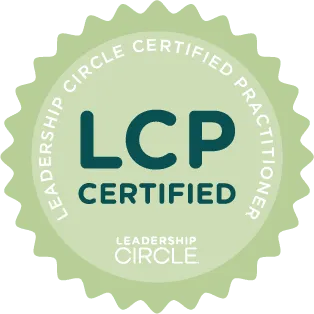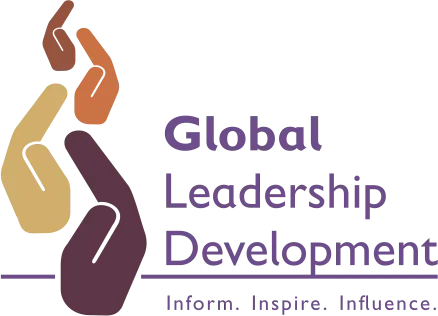Hello, I am Dr. Faith
Hello, I am Dr Faith Ngunjiri, a leadership coach, author, speaker and trainer. My goal is to help you become a better leader. I work with leaders through training programs, one on one coaching, masterclasses, workshops, and seminars.
Learn more about me here.
My leadership academies provide virtual training on topics such as emotional intelligence, assertive communication, harnessing leadership potential, and self-leadership mastery.

Global Leadership Development, LLC is a company committed to the growth of leaders. Our goal is to help you become a better, more authentic, more ethical leader.

Leadership Circle Profile Assessment
Integrating the Field of Leadership with the most comprehensive 360° Leadership Assessment.
The Leadership Circle Profile™ (LCP) provides a detailed snapshot in time, enabling leaders to answer the question: “How are my behaviors and mindset enabling or constraining my intended leadership impact and our business performance?”
Introducing Global Leadership Development, LLC
Having spent the past 20 years as a leadership educator, scholar, speaker, author and coach, I am excited to curate and facilitate courses outside of the university setting for women desiring to become better leaders.

Reinventing your Purpose
In reinventing your purpose, you would be reevaluating, redefining, and reorienting your life goals, passions, and aspirations, particularly during a transitional phase or a period of dissatisfaction.

Renewing your Spirit
We all need to engage in renewing our spirits by revitalizing and reconnecting with your inner self, belief system, or sense of meaning in life. This journey often involves introspection, self-discovery, and practices.

Growing in Emotional Intelligence
Emotional intelligence includes self-awareness, self-mastery, social awareness, and relationship management. We improve through reassessing and recalibrating one’s emotional well-being, attitudes, and responses to various life situations. T.

Reimagine Resiliency
To reimagine resiliency involves reevaluating and redefining one’s capacity to adapt, recover, and grow in the face of adversity, challenges, and setbacks. It involves recognizing the transformative potential of difficult experiences.

Reinvigorate your Leadership
Leaders need to be always learning, by revitalizing, re-energizing, and renewing their leadership approach. It is essential for leaders to continuously grow, adapt to new challenges with their teams or organizations.

LEADERSHIP ACADEMY
In order to support you in your journey of growth as a resilient, adaptable, emotionally intelligent, spiritually renewed leader, our leadership academy offers on-demand, virtual, self-guided courses. Sign up, invest in your growth and development.
My Thoughts
Read writings from Dr Faith Wambura Ngunjiri; an educator, professor, leadership coach, mental health advocate, solo mama, of African ascent on workplace, leadership and more.

Group Dynamics & Emotional Intelligence
In the realm of team dynamics, understanding the stages of group formation is crucial for achieving optimal performance. From the initial forming phase, where individuals come together, to the storming phase, where conflicts arise, and finally to the norming and performing phases, where cohesion and productivity flourish, each stage plays a vital role in the group's journey. In this blog post, we will delve into the intricacies of group dynamics and explore how teams can navigate through the forming, storming, norming, and performing stages to achieve success.
Group Formation & Emotional Intelligence
The forming stage marks the initial phase of team development. As per Tuckman's model, this stage sets the foundation for what happens next in the group. During the forming stage, individuals come together, acquaint themselves with one another, and establish the groundwork for future collaboration. This crucial phase lays the groundwork for team cohesion, trust-building, and goal alignment. Take for example, a newly chartered Rotary club, where thirty or so individuals have joined together due to their desire to live out the motto "Service above Self". The forming stage is that process of getting together and becoming a recognize club.
In organization, the formation may not be voluntary as in a club where individuals self-select based on their interests. Instead, teams may be formed based on the expertise of the individuals as required to accomplish a specific task. In that case, the members may have been selected by their leaders to be a part of the team. Either way, the forming stage is that initial period when the group is getting together and beginning to get to know one another.

As is clear from this apt infographic, the forming stage is characterized by polite engagement, small talk, the individuals are not quite at a place where they are fully sharing of themselves. They may be wondering how things will play out. Everything is still new, fresh, and uncertain.
The focus of the leaders in this early stage is relationship building and helping the team to gel. Activities that support team camaraderie can be supportive of this goal. Storming tends to come next as individuals are beginning to know one another, to realize how different they are, to recognize that they are not yet meeting the mandate for which the team or group was formed leading to frustration.
Storming
This is where conflicts arise, people are unhappy and frustrated and they air their sentiments. If the stage is handled adroitly, the team will survive to get to the next stage. If not, the team may prematurely adjourn.
Whereas some may view storming as a negative phase, it is not necessarily so. Storming enables individuals to air their grievances, to sort out their differences, and to actually get to know one another genuinely. Competition for positions or roles could be the source of the conflict. As can jostling for control.
The leader's role at this juncture is to ensure that the conflicts are resolved constructively. Do not sweep any issues under the rug, as they will surely erupt later to disrupt team cohesion. The conflicts can help leaders recognize gaps in group processes and procedures, setting the stage for the next step.
Norming
In order for groups, teams and even organizations to run efficiently, it is necessary to have rules of engagement, processes and procedures in place. When conflicts arise in the storming stage, it opens up the opportunity to craft those rules of engagement, including the processes for conflict resolution.
Leaders' roles at this stage is to ensure a fruitful process, one that incorporates the ideas, opinions and suggestions of the team members, and paying attention to the feelings and emotions as well. When norms are crafted in a participatory manner, they are more likely to serve as a guide for how the team will manage itself. If not, it can retard group process and lead to more conflict. Thus the need to ensure that individuals feel heard.
Having clear and agreed upon norms sets the stage for the team to focus on actually getting the job done, or accomplishing their mandate.
Performing
This is the sweet spot of group formation, when they are able to get done that for which the group was formed. For Rotary clubs, it's when we are at our best—performing community service projects, serving the needs of our neighbors near and far. For work teams, it's when they are able to get the job done. For my other club, the Business Networking International (BNI), it's when we are best able to give one another referrals and be the marketing team for our compatriots.

speaking on EI at a BNI meeting
As I engage with teams, groups and clubs, I like to point out that the Tuckman Model appears to suggest that group formation is linear, from forming to storming to norming to performing. But, reality suggests that sometimes group development is more haphazard, especially if conflicts arise too early, or remain too long. It's also possible for a group to find itself going back to earlier stages, for example, needing to return to norming to clarify their rules of engagement even as they are busy performing.
The Leader's role in performing is to ensure that the team has the resources they need to actually get the job done—whether that is financial, technology, or even human resources. The leader also needs to ensure that, as the team performs, they are getting recognition for a job well done, and constructive feedback to assure that learning is taking place. Failure to do that can lead to dissatisfaction and even a return to storming.
Adjourning
This is the stage where groups un-form, where the team breaks up because the project has been completed. As the infographic indicates, it is important to acknowledge that time is up, that the team no longer needs to stay intact, and I suggest, end by celebrating what has been accomplished and take time to learn from the process.
The Role of Emotional Intelligence
EI is a requisite skillset for team leaders, as well as for the individuals that constitute the team. If leaders are low in EI, it can contribute towards conflict and elongage the storming stage. If individual members are low on EI, it would contribute to the team collective EI being low and thus, more conflict and likelihood of derailing the group. I thus recommend that teams learn about EI, engage in assessing their individual and collective EI, and spend time enhancing it in order to be more effective.
When leaders find themselves stuck at the storming stage, that is a good time to call in an expert on EI and group dynamics, who can help the team unplug from toxicity and learn from the conflict. An outsider can be helpful, because they are not likely to be seen to be taking sides, as can happen if it's an insider trying to course-correct the team. This is where leadership development practitioners and coaches such as myself come in. Reach out to me for support and coaching.
Join Mailing List
I agree to terms & conditions provided by the company. By providing my phone number, I agree to receive text messages from the business.
Copyright 2023 Faith Ngunjiri, Ed.D

